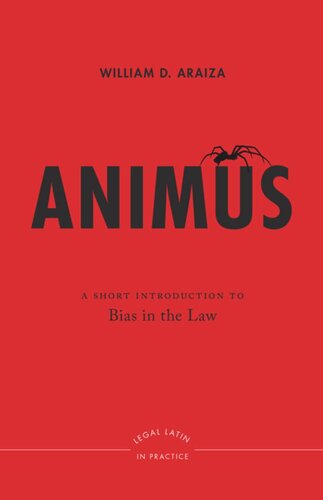

Most ebook files are in PDF format, so you can easily read them using various software such as Foxit Reader or directly on the Google Chrome browser.
Some ebook files are released by publishers in other formats such as .awz, .mobi, .epub, .fb2, etc. You may need to install specific software to read these formats on mobile/PC, such as Calibre.
Please read the tutorial at this link: https://ebookbell.com/faq
We offer FREE conversion to the popular formats you request; however, this may take some time. Therefore, right after payment, please email us, and we will try to provide the service as quickly as possible.
For some exceptional file formats or broken links (if any), please refrain from opening any disputes. Instead, email us first, and we will try to assist within a maximum of 6 hours.
EbookBell Team

4.4
102 reviewsAn introduction to the legal concept of unconstitutional bias.
If a town council denies a zoning permit for a group home for intellectually disabled persons because residents don’t want “those kinds of people” in the neighborhood, the town’s decision is motivated by the public’s dislike of a particular group. Constitutional law calls this rationale “animus.”
Over the last two decades, the Supreme Court has increasingly turned to the concept of animus to explain why some instances of discrimination are unconstitutional. However, the Court’s condemnation of animus fails to address some serious questions. How can animus on the part of people and institutions be uncovered? Does mere opposition to a particular group’s equality claims constitute animus? Does the concept of animus have roots in the Constitution?
Animus engages these important questions, offering an original and provocative introduction to this type of unconstitutional bias. William Araiza analyzes some of the modern Supreme Court’s most important discrimination cases through the lens of animus, tracing the concept from nineteenth century legal doctrine to today’s landmark cases, including Obergefell vs. Hodges and United States v. Windsor, both related to the legal rights of same-sex couples. Animus humanizes what might otherwise be an abstract legal question, illustrating what constitutes animus, and why the prohibition against it matters more today than ever in our pluralistic society.